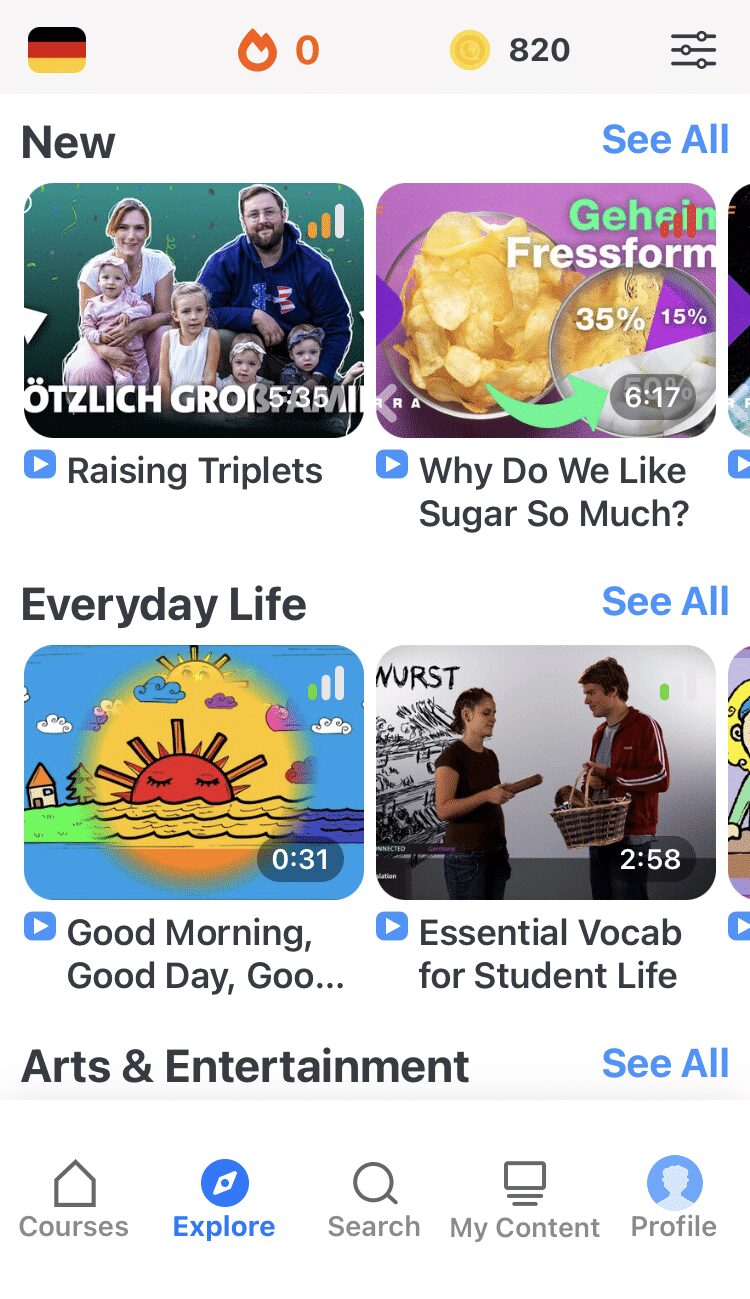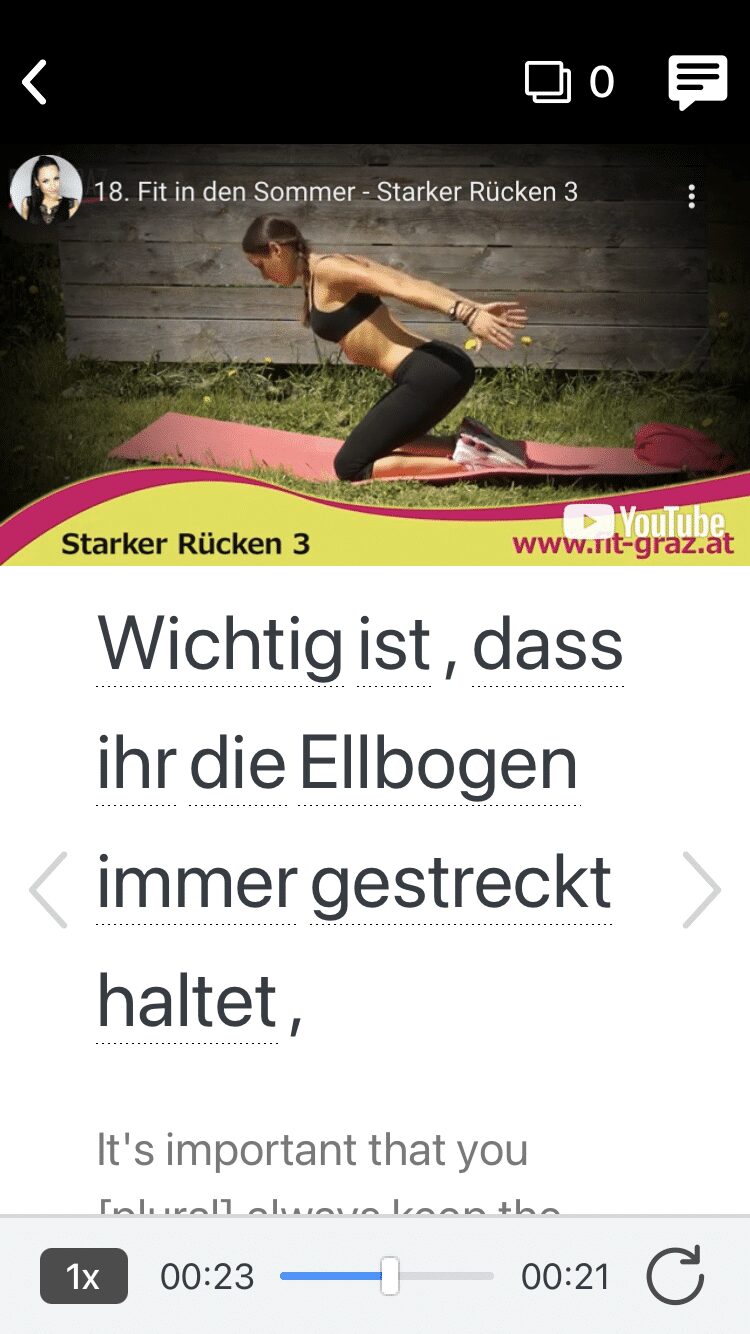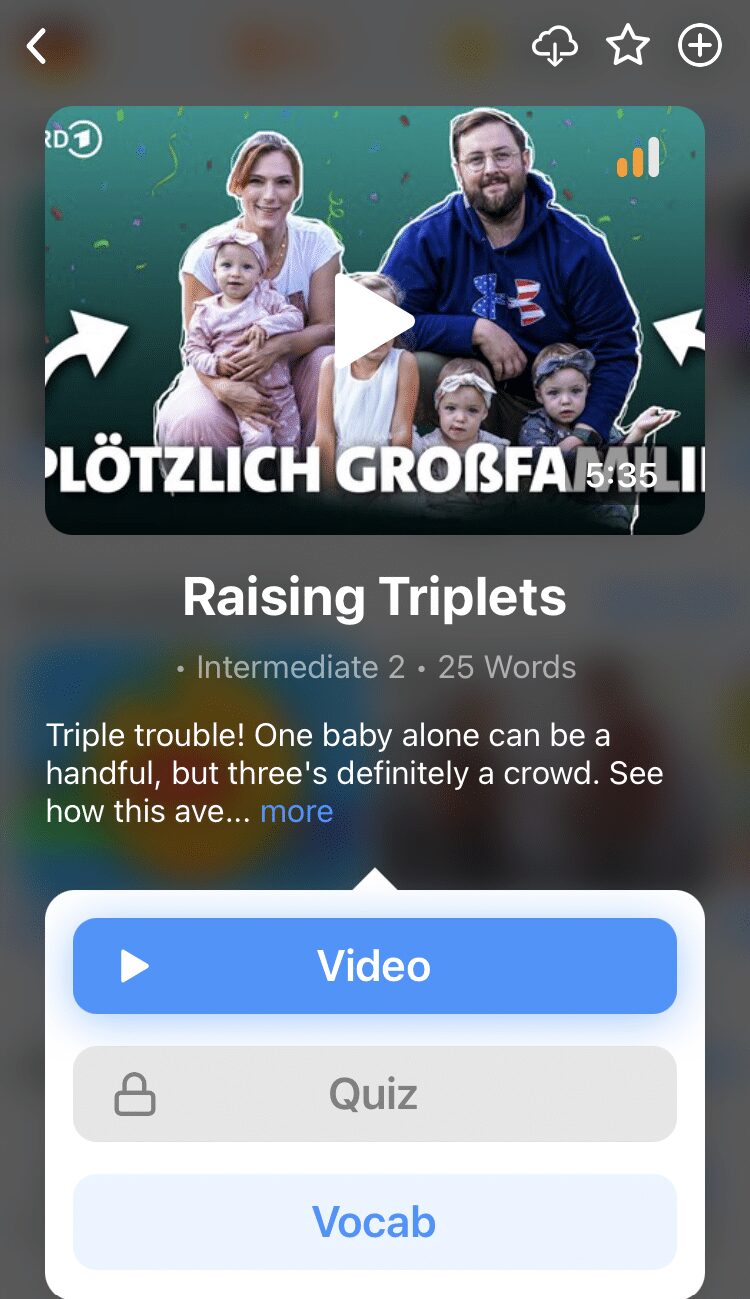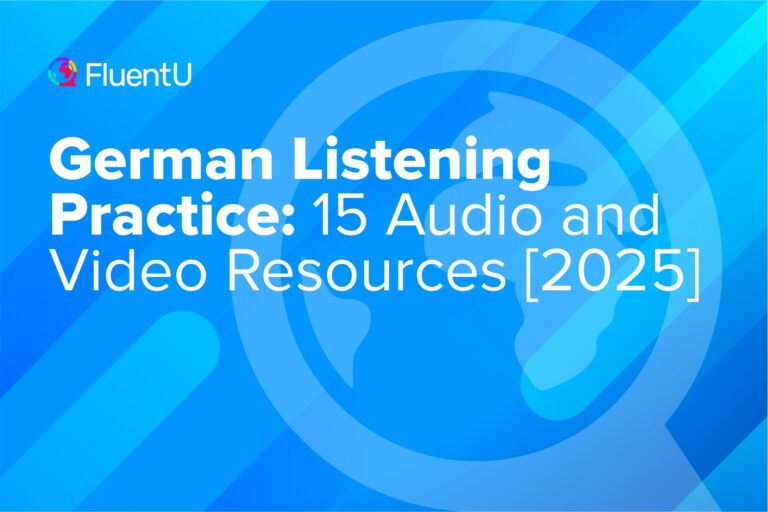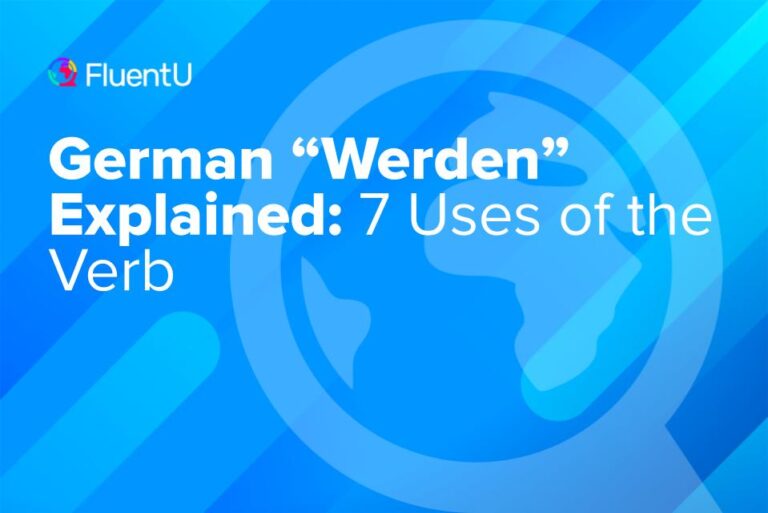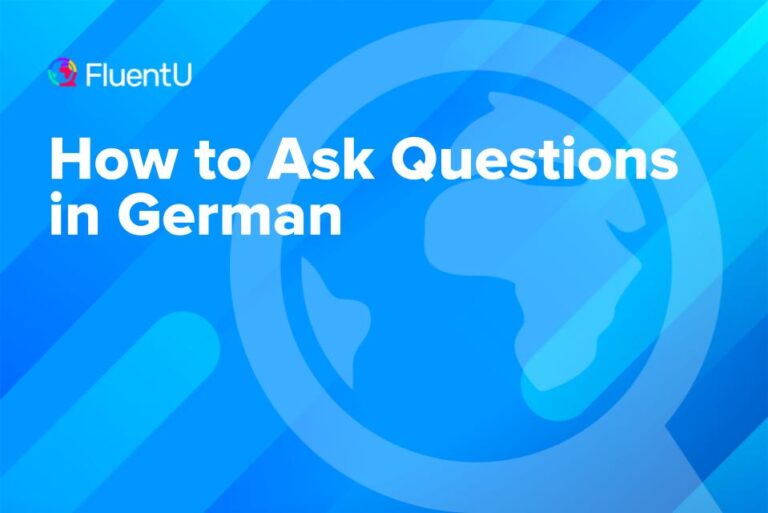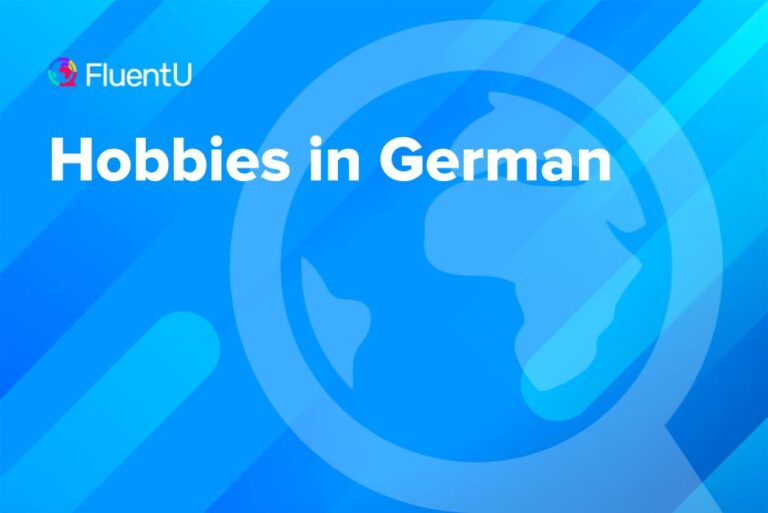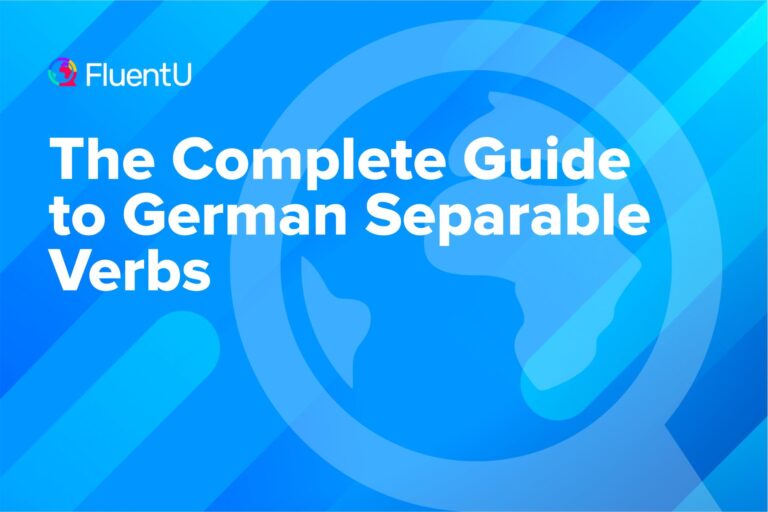200+ Common German Nouns [with Audio]
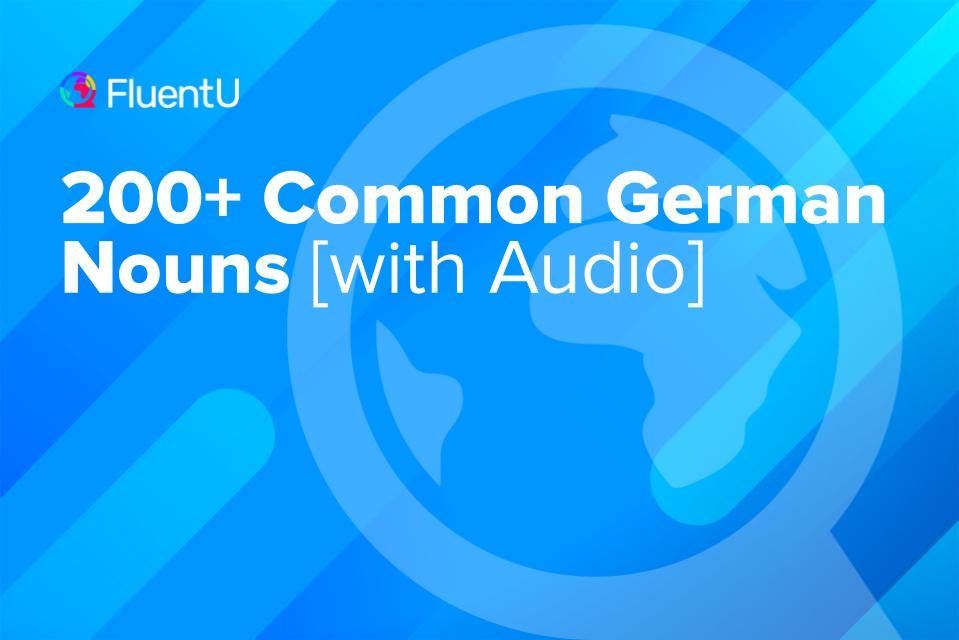
German nouns have a pretty interesting reputation, as you’ve probably already encountered some really long compound nouns. But common German nouns that you’re likely to use in everyday speech are often pretty short and easy to remember.
Once you get started with learning the most common German nouns, you’ll build up a vessel of knowledge that will accelerate your learning and transport you toward fluency.
Download: This blog post is available as a convenient and portable PDF that you can take anywhere. Click here to get a copy. (Download)
Characteristics of a German Noun
Here are a few things to know about German nouns that can help you spot them as you read or listen:
(1) Nouns are a person, location, object or concept. Examples of this include der Freund (friend), die Stadt (city), der Ball (ball) and die Freiheit (freedom).
(2) Nouns are capitalized, like proper names in English: Freund, Stadt, Ball, Freiheit.
(3) Nouns can be singular or plural, just like in English.
(4) Nouns have an article, which denotes their gender: der, die or das.
Nouns are used a lot in German, second only to verbs. Keep these characteristics in mind as you read, and you will start spotting nouns in no time!
German Compound Nouns
German compound nouns are formed by combining nouns to create one single long word. These compound nouns follow a certain logic and are specially built to transport extra vocabulary.
For example, the word die Groβschachanlage means “giant chessboard.” It’s formed from the following words:
- groβ means “large” or “giant”
- (das) Schach means “chess”
- (die) Anlage means “board”
Joined together, you have “giant-chess-board,” or Groβ-schach-anlage.
Some German compound nouns can be comprised of many, many nouns. The next time you’re reading, see what compound nouns you can find.
Everyday German Nouns
Memorizing the nouns below will give you a good general base of German vocabulary. The German words are divided into themed lists so that you can cover useful categories at your own pace.
Family and Friends
- mother: die Mutter
- father: der Vater
- sister: die Schwester
- brother: der Bruder
- child: das Kind
- aunt: die Tante
- uncle: der Onkel
- grandmother: die Groβmutter
- grandfather: der Groβvater
- female cousin: die Cousine
- male cousin: der Cousin
- boyfriend: der Freund
- girlfriend: die Freundin
- husband: der Mann
- wife: die Frau
- male colleague: der Kollege
- female colleague: die Kollegin
- male partner: der Partner
- female partner: die Partnerin
If you wanted to say, “Here is my Uncle Tom and Aunt Theresa” in German, you would say, “Hier sind mein Onkel Tom und meine Tante Theresa.”
Similarly, you would say, “Sie ist meine Schwester” if you wanted to say, “She is my sister.”
Household Objects
- house: das Haus
- bed: das Bett
- table: der Tisch
- door: die Tür
- pillow/cushion: das Kissen
- window: das Fenster
- wall: die Wand
- floor: der Boden
- bedroom: das Schlafzimmer
- bathroom: das Badezimmer
- kitchen: die Küche
- living room: die Wohnung
- basement: der Keller
- couch: die Couch
- chair: der Stuhl
- sink: das Waschbecken
- toilet: die Toilette
- bathtub: die Badewanne
- shower: die Dusche
- lamp: die Lampe
- trash: der Müll
- refrigerator: der Kühlschrank
- stove: der Herd
- microwave: der Mikrowellenherd
- dishwasher: die Geschirrspülmaschine
- cabinet: das Kabinett
In German, “Ich putze die Dusche” means, “I clean the shower.”
To say, “He sits in the chair,” you would use der Stuhl to say, “Er sitzt auf dem Stuhl.”
Transportation
- car: das Auto
- truck: der Lustkraftwagen (LKW)
- bus: der Bus
- plane: das Flugzeug
- train: der Zug
- boat: das Boot
- taxi: das Taxi
- school bus: der Schulbus
- ticket: das Ticket
- pass: der Pass
- semi truck: der Sattelzug
Do you take the bus to work? Simply say, “Ich fahre mit dem Bus in die Arbeit.” (Literally, “I travel with the bus to work,” or more colloquially, “I take the bus to work.”)
Pilots would say, “Ich fliege das Flugzeug” to mean they are flying the plane.
The vocabulary we’ve covered so far are used all the time, and you can pick up more by watching authentic German media content.
FluentU takes authentic videos—like music videos, movie trailers, news and inspiring talks—and turns them into personalized language learning lessons.
You can try FluentU for free for 2 weeks. Check out the website or download the iOS app or Android app.
P.S. Click here to take advantage of our current sale! (Expires at the end of this month.)
Locations
- city: die Stadt
- country: das Land
- mountain: der Berg
- plains: die Ebenen
- desert: die Wüste
- school: die Schule
- work: die Arbeit
- homeland: das Heimatland
Do you live auf dem Land (in the country) or in der Stadt (in the city)?
Occupations
As with family and friend nouns, occupations have a masculine and feminine form.
- pilot: der Pilot / die Pilotin
- doctor: der Doktor / die Doktorin
- dentist: der Zahnarzt / die Zahnarztin
- librarian: der Bibliothekar / die Bibliothekarin
- hairdresser: der Friseur / die Friseurin
- lawyer: der Rechtsanwalt / die Rechtsanwältin
- salesman/woman: der Verkäufer / die Verkäuferin
- bus driver: der Busfahrer / die Busfahrerin
- teacher: der Lehrer / die Lehrerin
- professor: der Professor / die Professorin
- assistant: der Assistent / die Assistentin
- stock broker: der Börsenmakler / die Börsenmaklerin
- marketer: der Vermarkter / die Vermarkterin
- insurance agent: der Versicherungsagent / die Verischerungsagentin
- truck driver: der LKW-Fahrer / die LKW-Fahrerin
- writer: der Schriftsteller / die Schriftstellerin
- editor: der Redakteur / die Redakteurin
- journalist: der Journalist / die Journalistin
- machinist: der Mechaniker / die Mechanikerin
- carpenter: der Zimmermann / die Zimmerfrau
- computer programmer: der Computerprogrammierer / die Computerprogrammiererin
- personal trainer: der persönliche Trainer / die persönliche Trainerin
- supervisor: der Vorgesetzte / die Vorgesetzterin
- boss: der Chef / die Chefin
- caregiver: der Pfleger / die Pflegerin
- clerk: der Angestellter / die Angestellte
- detective: der Detektiv / die Detektivin
- police officer: der Polizeibeamte / die Polizeibeamtin
- firefighter: der Feuerwehrmann / die Feuerwehrfrau
What do your parents do?
You could say, “My father is a supervisor, and my mother is a clerk,” or “Mein Vater ist Vorgesetzte und meine Mutter ist Angestellte.”
Food
- breakfast: das Frühstuck
- lunch: das Mittagessen
- dinner: das Abendessen
- snack: der Snack
- dessert: das Dessert
- cake: der Kuchen
- bread: das Brot
- milk: die Milch
- egg: das Ei
- flour: das Mehl
- sugar: der Zucker
- meat: das Fleisch
- turkey: der Truthahn
- pork: das Schweinefleisch
- chicken: das Huhn
- tofu: der Tofu
- salad: der Salat
- pizza: die Pizza
- cracker: die Cracker
- cereal: das Müsli
- oatmeal: das Haferflocken
- pancakes: die Pfannkuchen
- bacon: der Speck
- chocolate: die Schokolade
- fruit: das Obst
- vegetable: das Gemüse
- apple: der Aprfel
- carrot: die Karotte
- pear: die Birne
- banana: die Banane
- tomato: die Tomate
- potato: die Kartoffel
- celery: der Sellerie
- broccoli: der Brokkoli
- onion: die Zwiebel
- cucumber: die Gurke
- zucchini: die Zucchini
- peach: der Pfirsich
- nut: die Nuss
- Brussels sprouts: der Rosenkohl
- lasagna: die Lasagna
- spaghetti: die Spaghetti
- macaroni: die Makkaroni
- peanut butter: die Erdnussbutter
- jelly: das Gelee
- sandwich: das Sandwich
- burger: der Burger
- fries: die Pommes
- soup: die Suppe
- fish: der Fisch
- rice: der Reis
- beans: die Bohnen
- burrito: der Burrito
- ham: der Schinken
- pasta: die Pasta
Was für einen Apfel haben Sie gern? (What kind of apples do you like?)
You might say, “I like red apples,” or “Ich habe rote Äpfel gern.”
Pets
- dog: der Hund
- cat: die Katze
- fish: der Fisch
- bird: der Vogel
- snake: die Schlange
- mouse: die Maus
- gerbil: die Rennmaus
- hamster: der Hamster
- ferret: das Frettchen
If you wanted to say, “My bird’s name is Perry,” you would say, “Mein Vogel heiβt Perry.”
To say, “I have a brown dog,” you would need to make sure “brown” has the correct adjective ending: “Ich habe einen braunen Hund.”
Clothing Items
- shirt: das Hemd
- pants: die Hose
- coat: der Mantel
- socks: die Socken
- shoes: die Schuhe
- shorts: die Shorts
- underwear: die Unterwäsche
- blouse: die Bluse
- bra: der Büstenhalter ( BH , for short!)
- jeans: die Jeans
- belt: der Gürtel
- hat: der Hut
- tie: die Krawatte
- dress: das Kleid
- skirt: der Rock
- boots: die Stiefel
Welche Farbe hat dein Hemd? (What color is your shirt?)
Mein Hemd ist blau. (My shirt is blue.)
Haben Sie meine Krawatte gesehen? (Have you seen my tie?)
Sports
- baseball: der Baseball
- basketball: der Basketball
- soccer: der Fuβball
- football: der Football
- hockey: das Hockey
- rugby: das Rugby
- tennis: das Tennis
- lacrosse: das Lacrosse
- cricket: das Cricket
- volleyball: der Volleyball
- golf: der Golf
Welcher Sport haben Sie besser, das Hockey oder den Golf? (What sport do you like better, hockey or golf?)
Ich habe leider beide nicht gern. Ich finde den Golf langweilig. (Unfortunately, I don’t like either. I think golf is boring.)
Personal Belongings
- purse: der Geldbeutel
- cellphone: das Handy
- keys: die Schlüssel
- wallet: das Portemonnaie
- money: das Geld
- watch: die Uhr
- jewelry: der Schmuck
- chapstick: der Lippenstift
- bag: die Tasche
- laptop: der Laptop
- iPod: der iPod
- MP3 player: der MP3-Player
- notebook: das Notebook
- credit card: die Kreditkarte
- driver’s license: der Führerschein
Wo haben Sie deinen Schmuck gekauft? (Where did you buy your jewelry?)
Ich habe deine Tasche gern. (I really like your bag.)
You’ll end up using a lot of the above German nouns in conversations and writing.
Do your best to memorize as many as you can and your vocabulary will expand exponentially!
Download: This blog post is available as a convenient and portable PDF that you can take anywhere. Click here to get a copy. (Download)
And One More Thing...
Want to know the key to learning German effectively?
It's using the right content and tools, like FluentU has to offer! Browse hundreds of videos, take endless quizzes and master the German language faster than you've ever imagine!
Watching a fun video, but having trouble understanding it? FluentU brings native videos within reach with interactive subtitles.
You can tap on any word to look it up instantly. Every definition has examples that have been written to help you understand how the word is used. If you see an interesting word you don't know, you can add it to a vocabulary list.
And FluentU isn't just for watching videos. It's a complete platform for learning. It's designed to effectively teach you all the vocabulary from any video. Swipe left or right to see more examples of the word you're on.
The best part is that FluentU keeps track of the vocabulary that you're learning, and gives you extra practice with difficult words. It'll even remind you when it’s time to review what you’ve learned.
Start using the FluentU website on your computer or tablet or, better yet, download the FluentU app from the iTunes or Google Play store. Click here to take advantage of our current sale! (Expires at the end of this month.)

